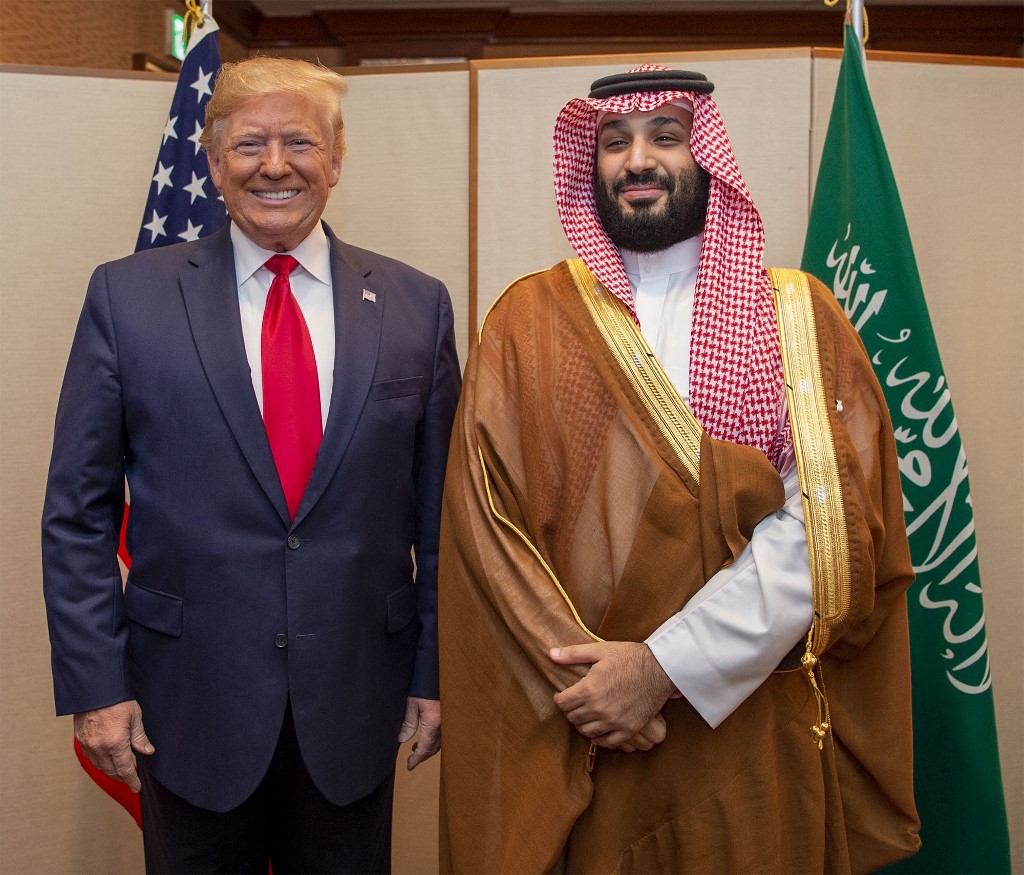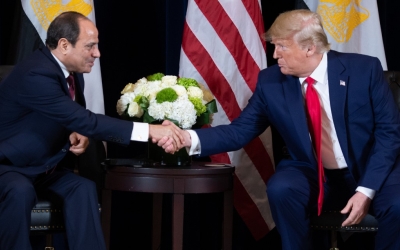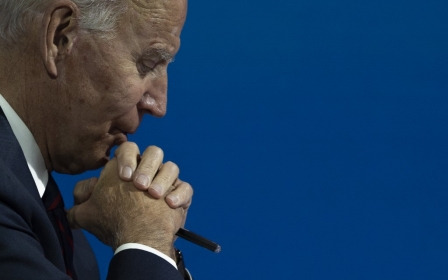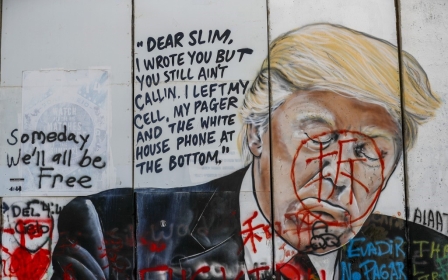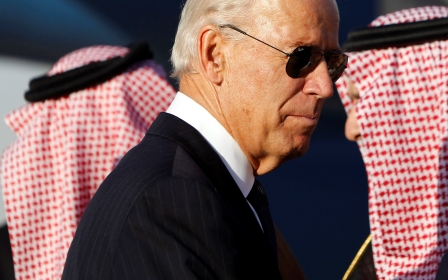Washington's history of surrealpolitik in the Middle East
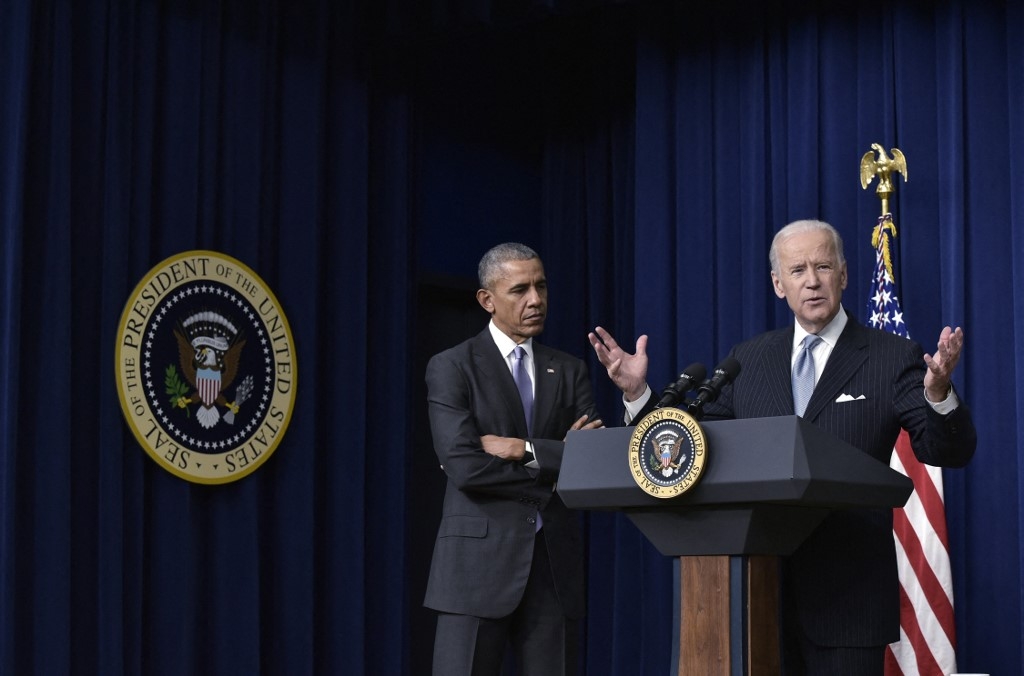
US policy in the Middle East has a long history of repeating the same mistakes and expecting different results. Although each new US administration ignites new hopes, we have seen the same results for decades.
Washington’s foreign policy - frequently contextualised in the labyrinths of American hegemony, great power competition and the Cold War equation throughout the 20th century - has been relieved of these burdens in the new millennium. The result, however, has not changed.
The US foreign policy and security establishment has continued to pursue interests in the Middle East and to make grave mistakes. For decades, realpolitik acted as a saviour for these poor decisions, pushing the US to give unconditional support to Israel, offer an insurance policy to dictators, occupy Afghanistan and Iraq, and obsess over Iran while handing it Iraq and Syria. The list goes on.
The Khashoggi case
Years passed, and after two decades, policymakers in Washington finally woke up and realised what they really needed to focus on was countering Chinese “coercion” and Russian “recklessness”. While US policy on the Middle East was ostensibly realpolitik, in reality, it was pure surrealpolitik. Yet, Washington has a tendency to drag itself back into the same policies; President Joe Biden’s decision on the Jamal Khashoggi affair presents a typical example.
New MEE newsletter: Jerusalem Dispatch
Sign up to get the latest insights and analysis on Israel-Palestine, alongside Turkey Unpacked and other MEE newsletters
Khashoggi was a test for the Biden administration. It failed, just as the Obama-Biden administration failed on many fronts years earlier. One of the Obama-Biden administration’s striking features was its poor track record with democracy in the Middle East, despite high-volume liberal rhetoric.
Bin Salman and his carbon copies throughout the region will continue to oppress the masses, while activists lose more and more ground in defence of democracy
US foreign policy speeches have not translated into action in the Middle East. In his first year in office, Obama made a litany of promises in Cairo, vowing to “welcome all elected, peaceful governments”. But when Egypt’s first democratically elected president was toppled in a bloody coup, Obama refused to even label it a coup.
The pattern kept repeating itself. Obama infamously said in 2012 that the use of chemical weapons in Syria was a red line. Exactly a year later, the Assad regime massacred hundreds of people with sarin gas; Obama flip-flopped. He also supported the Maliki government that tarnished Iraq, and gave a green light to Iran to save the Assad regime, costing hundreds of thousands of Syrian lives.
Near the end of his term, when Turkey faced a bloody coup attempt, Obama did not leap to defend democracy, instead waiting to see how things played out. In short, when democracy mattered in the Middle East, the Obama-Biden administration was either busy supporting anti-democratic governments, or too slow to defend it. Tragically, this divergence occurred during the Arab Spring, the first real pro-democracy push in a century by the peoples of the Middle East.
High hopes
After a disastrous four years with former President Donald Trump, there were high hopes for the Biden administration - surely not among governments, but among the peoples of the region. Trump’s approach towards the Middle East was a brazen affront to the last remaining hopes of democracy. After his abject failure on the Khashoggi file, Biden followed his lead, ignoring the opportunity to defend democracy and allowing Saudi Crown Prince Mohammed bin Salman to get off scot-free.
Holding Mohammed bin Salman responsible for Khashoggi’s murder is of no value on its own, as it was not only the crown prince who killed an innocent journalist; rather, the regional order that Washington has sustained for years has destroyed any glimmer of hope in the region. Convicting bin Salman would have meant everything and nothing.
Had the Saudi leader been punished, the domino effect could have spread throughout the region, from Egypt to Israel, turning everything upside-down. A conviction without the unraveling of the regional status quo would have meant nothing. Expecting an administration that turned the Arab Spring into a winter to change the archaic regional order now, is naive.
Still, Biden’s move surprised many, even though it came in accordance with his track record. From the Maliki government to the Assad regime, and from Tehran to Tel Aviv, the Obama-Biden administration followed the same practice: talk democracy and human rights, while acting in an opposite fashion. This hypocrisy might be called realpolitik, but it is actually a vicious cycle of surrealpolitik. Mohammed bin Salman and his carbon copies throughout the region will continue to oppress the masses, while activists lose more and more ground in defence of democracy.
Myopic policies
A year ago, in a manifesto-style Foreign Affairs article titled “Why America must lead again”, Biden outlined his foreign policy vision. Since then, the Khashoggi decision has hinted at how the US will lead, especially in the Middle East - but this should not come as a surprise. Without an existential perspective change and a paradigm shift, US policy in the Middle East will keep spinning.
The Biden administration, equipped with an Obama-era foreign policy team, offers no fresh vision. The “new” crew, at best, will achieve Obama 2.0. Between 2009 and 2017, the Middle East experienced all forms of human tragedy, and the myopic policies of the Biden team will do little to alleviate the region’s turbulence.
Biden’s national security circle looks like the Bush team after 9/11, largely seen as a great asset at first. They represented a hawkish and tough Republican vein, but had ample experience to discern realpolitik from ambitions. They were names who had already proven themselves, old pros who had learned lessons from the tragic mistakes of the 1991 Gulf War, inconsistent approaches to allies, and viewing the Middle East from a reductionist perspective.
They expected to manage and confidently drive policies after 9/11, not jump off a cliff. Instead, this experienced and allegedly wise team dragged the US into two wars, from which it could not escape for decades. The Middle East itself paid a much heavier price.
Biden’s foreign policy and national security team is reminiscent of the Bush era, with a very similar approach to global issues and reading of the Middle East. They have strong convictions and shortcut solutions to the region’s crises. They ignore centrifugal forces, regional implications and impact analyses. Such figures apparently did not realise the true costs of chaining US foreign policy to the fight against terrorism in the Middle East. Out of this obsession, Washington’s blind spots bloomed.
Demand for democracy
Despite all his predicaments, Biden became US president during a glorious period. It is the first time in many years that such a vast demand for democracy and international institutions has accumulated. A severe need for rationalism has emerged amid the destruction caused by populism in the US and globally.
In the Middle East, the search and need for order, stability and democracy has grown more than ever over the last decade. Biden can surf on great energy if he desires - but this requires changing the status quo, not strengthening it. The Covid-19 multiplier effect alone provides many opportunities for unprecedented structural change on a global scale.
If the Biden administration tries to repeat the Obama era rather than take the opportunity to implement change, then we already know the likely outcome
The question for Biden is whether he will face these problems by erasing some blind spots and widening his perspective. The new administration’s first amateurish move was on the Khashoggi file. For years, the US has treated surrealpolitik as realpolitik, especially in the Middle East. This new era provides a unique opportunity for a true realpolitik perspective.
If the Biden administration tries to repeat the Obama era rather than take the opportunity to implement change, then we already know the likely outcome. At least the peoples of the Middle East have enough wisdom to know that “no man ever steps in the same river twice, for it’s not the same river and he’s not the same man”.
The views expressed in this article belong to the author and do not necessarily reflect the editorial policy of Middle East Eye.
Middle East Eye delivers independent and unrivalled coverage and analysis of the Middle East, North Africa and beyond. To learn more about republishing this content and the associated fees, please fill out this form. More about MEE can be found here.



